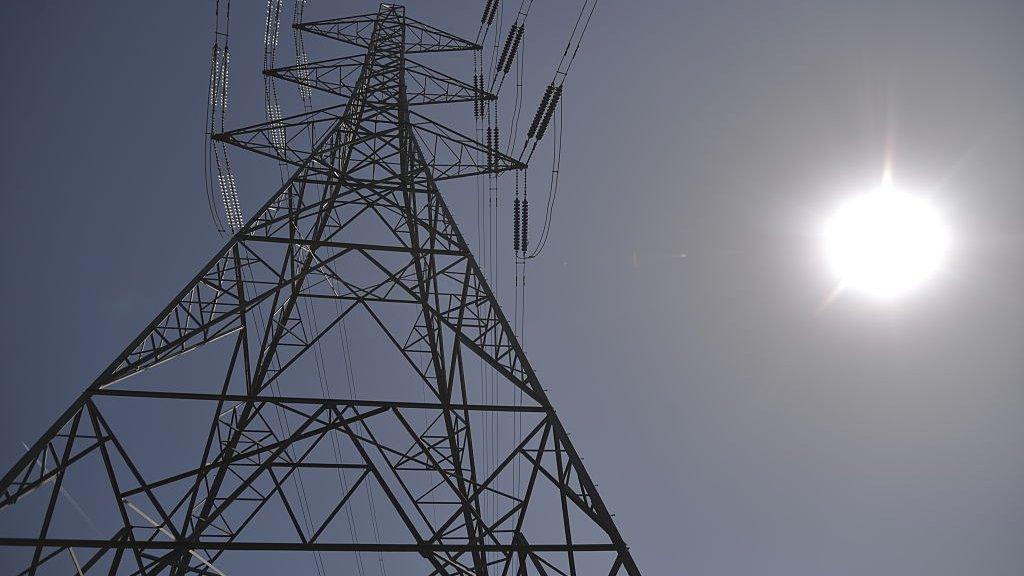UK 'need not fear electricity blackouts' says ex-National Grid boss
- Published
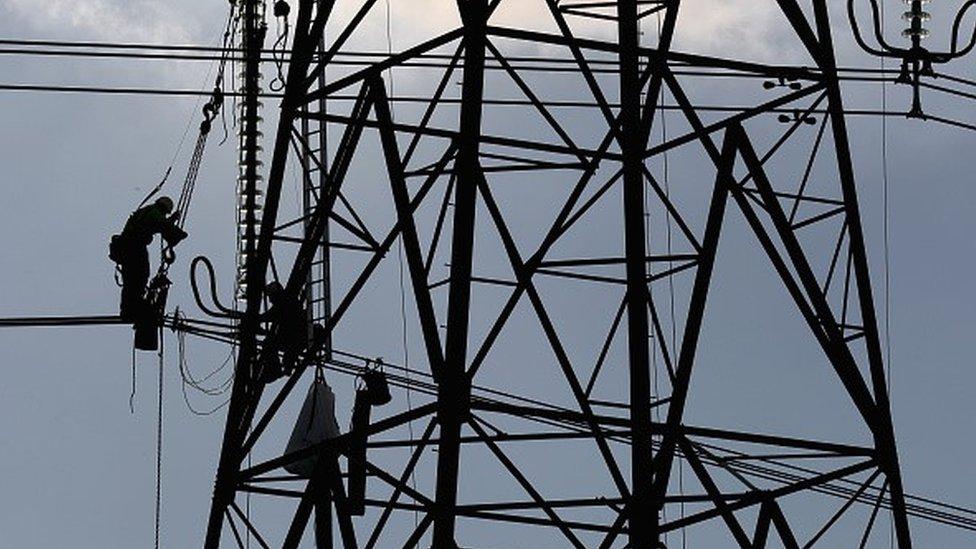
The UK has enough energy capacity to meet demand - even on the coldest days when demand is highest, says Steve Holliday, the man who ran National Grid for a decade.
He said news stories raising fears about blackouts should stop.
His optimism is based on the government's latest auction of capacity for power generation, which starts later today.
Firms will bid for subsidies to provide back-up power when needed.
The stand-by plants will run for a few days a year during extreme conditions.
Much of the back-up will be provided by old gas and coal plants that would otherwise be scrapped. Funded by the bill-payer, they will offer a sort of power insurance policy.
Mr Holliday told BBC News: "It's time for the headline of Blackout Britain to end - it's simply wrong. We've been talking about blackouts for 15 years every time it gets cold, but it's a scare story.
"The lights haven't gone out yet and thanks to the measures the government is putting in place this week they definitely won't go out in future. The UK has one of the most stable supplies of electricity in Europe."
Concern over price
The head of the Energy Intensive Users Group (EIUG), which represents companies that use a lot of energy, Jeremy Nicholson, has previously voiced fears about energy security but agrees the capacity auctions will secure supplies.
He told BBC News: "The power industry makes a lot of noise about tight generating margins but somehow manages to provide plenty of capacity when it's needed.
"The capacity issue is sorted now - frankly it should have happened 5-10 years ago. Our bigger concern now is the possibility that when margins are tight, the price will shoot through the roof."
Former head of National Grid tells Today that Britain is a world-leader in energy management.
A spokesman for Energy UK, the body that represents power generators, was also confident about security of supply, saying: "We fully support the Capacity Market and we believe it will keep the lights on in Great Britain."
The capacity auctions were originally due to supply back-up from 2018, but the government brought the scheme forward to cover next winter.
Successful bidders in the auctions will receive a payment for keeping power stations available between November and February whether or not they are generating.
Flexible electricity
Coal, gas and nuclear stations can bid for the availability payment, along with demand reduction suppliers and interconnectors. National Grid juggles what's needed and when.
The capacity auction is expected to cost £2-3bn a year.
A government spokesman said securing capacity to back up intermittent forms of energy like solar and wind might cost about £7 per year per household at first, shrinking to £2 over the long term. He said power shortages resulting in price spikes would be much more expensive.
Generating margins were forecast to be tight for this winter, but there has been no problem, despite a long cold windless spell during which wind energy has produced around 1% of electricity demand. The highest daily percentage of wind power was over 20%.
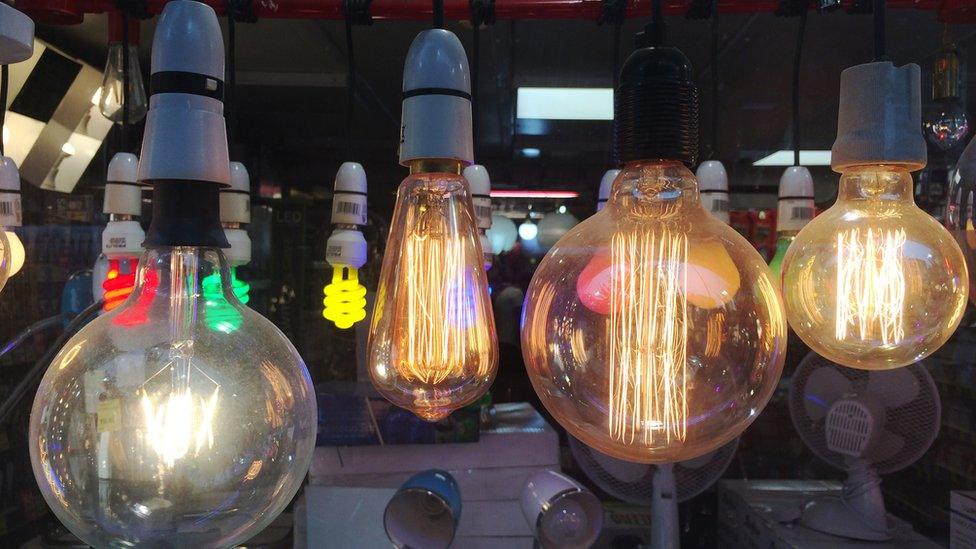
Mr Holliday says the UK has one of the most stable electricity supplies in Europe
Mr Holliday, who was chief executive of National Grid until July 2016, forecasts that all future talk of blackouts will be made redundant by a revolution in flexible electricity, with customers using power when it is cheapest.
One current weapon at National Grid's disposal is a contract for flexible supply with firms which don't manufacture continuously.
The firms get compensated if they are asked to stop consuming power for a while during, say, a windless spell.
Stories in the media have reported this as risky for UK Plc. But the EIUG disagrees.
Mr Nicholson told BBC News: "Clearly firms can benefit from being incentivised to turn down their energy use if it doesn't affect their production. Firms needing continuous production don't turn off their power."
- Published19 January 2017
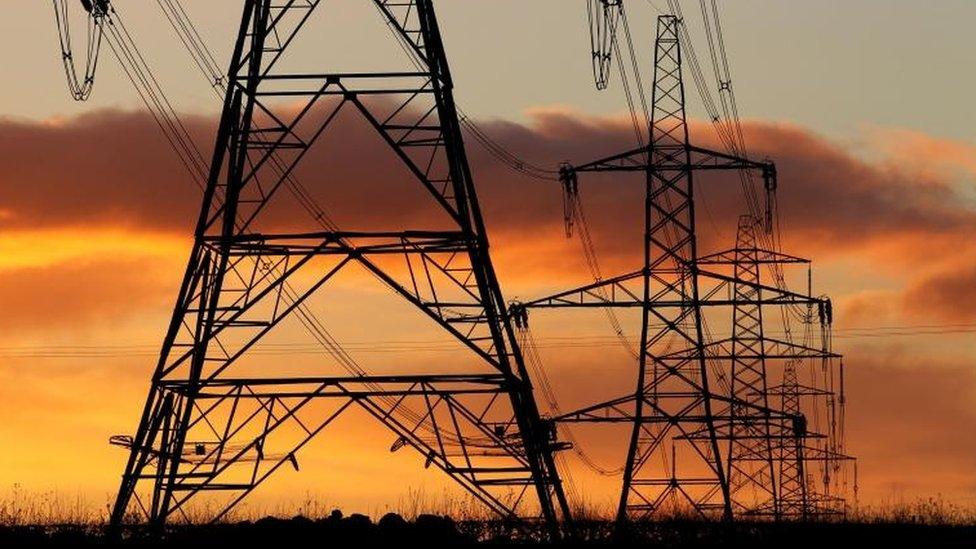
- Published12 January 2017
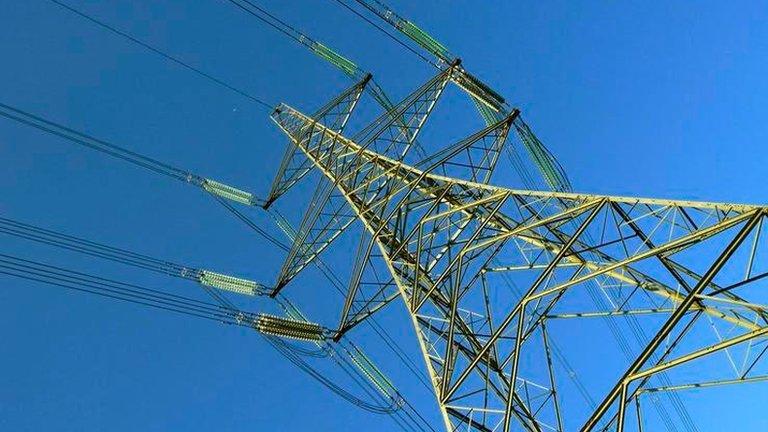
- Published31 August 2016
